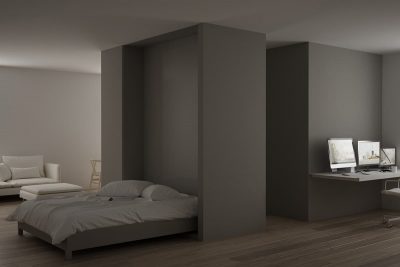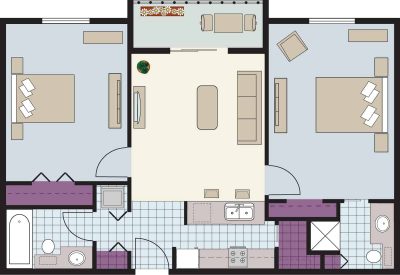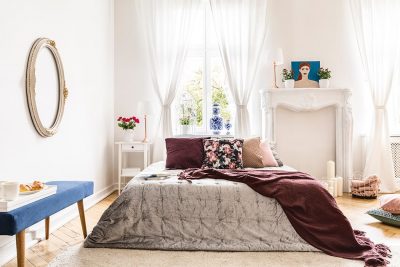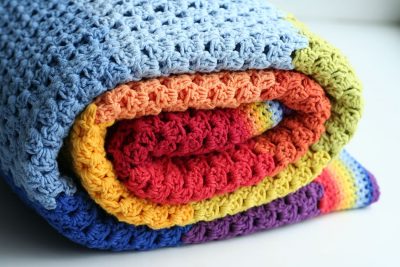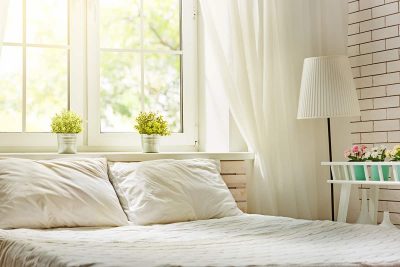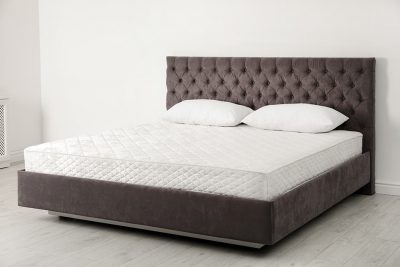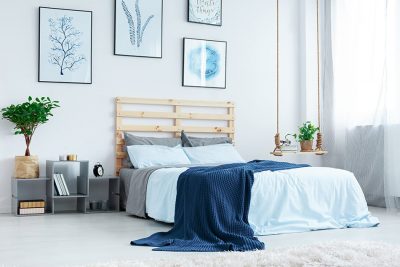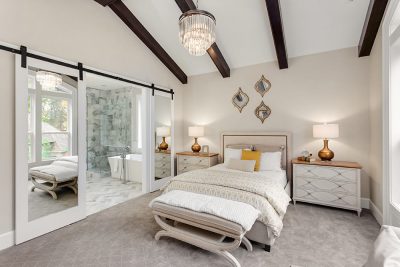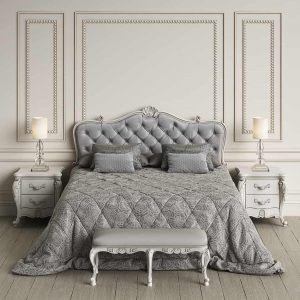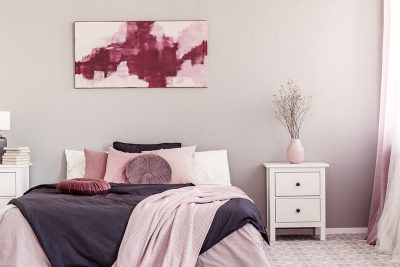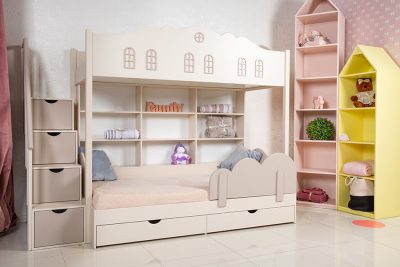Bedroom
Murphy beds are a popular type of furniture used in apartments or homes where space is limited. They are also known as wall beds or fold-down beds because when not in use, they are held in an upright position against the wall and fold-down for sleeping.
King size comforters are a popular choice, even on beds that are smaller than king-size, because they give a feeling of being snuggled in luxury. However, king-size comforters can be problematic to clean because they are simply so enormous that they don’t easily fit into all types of washing machines. Here we look at what size washer you would need to clean a king comforter at home and alternatives you could consider if your washing machine doesn’t have a big enough capacity.
If you are looking for a new place to live, you might be wondering how many bedrooms you will need in an apartment to fit your family in, or as a landlord, you may be interested in finding out how many people you can legally allow in one of your rented properties.
Nothing amplifies a lazy Sunday afternoon, or Friday evening, or any other relaxing day like a comfy, wholesome throw blanket. You get to snuggle on your sofa, watch a movie, and enjoy a glass of wine. These blankets are also used on beds to add extra warmth in the night or used as a cover-up during a daytime nap.
Crochet blankets are usually handmade items that can hold a lot of sentimental value. You may have had one made especially for you by a relative or one you bought for your baby when they were first born. These types of blankets can be ruined easily if they are not cared for in the proper way, and most commonly, this happens when someone unknowingly puts their crochet blanket in the washing machine to be cleaned.
Bedding colors shape our mood and encourage a good night’s sleep. When we’re surrounded by color, our sleep habits and bedroom style come into play. A white comforter, for example, provides a crisp and fresh look to any bedroom. When it’s paired with the right color sheet, you can liven up your bed to suit your personal taste.
According to research, the average human who lives up to the ripe old age of 80 will spend an average of 33 years sleeping. That’s over a third of a lifetime! Knowing just how much time you could be spending in bed, don’t you think it’s worth paying more attention to your mattress? We think so. So, we’ve prepared a guide to help you choose the best type of mattress for a good night’s rest.
Buying the perfect bed is not an easy task because of the numerous choices. As you know, there are several types of beds, and they are categorized based on their size, style, and material. As such, you have to consider these three factors when purchasing a bed. The good news is that we can help you find the perfect product. So, what are the different types of beds?
If you’ve been browsing property listings, you might have come across the term ‘split bedroom’ in reference to the floor plan of the house. This is a phrase which many people haven’t heard before, especially if they have always lived in two or three-story properties. To learn all about split bedroom layouts, along with their pros and cons and possible floor plans, read on.
Your bedroom is a place where you want to relax your mind and body, so it is only natural that you’ll want to decorate it in your own style or taste. But if you are undecided on the color, we have a surprising suggestion for you. Silver is a powerful color visually characterized by a metallic shine that’s close to the color grey.
For many people, a nightstand or bedside table is the primary overnight resting spot for their smartphone, book, water bottle, and photos of loved ones, among other items. Finding a nightstand is not a challenge; there are many to choose from in any furniture store.
For families with several children or who simply like to receive frequent guests and playdates, bunk beds are one of the best ways to save space. Not only do they allow siblings to share a room, but they can also provide a great space to climb, plot, and create mayhem. It should not be surprising, then, that many of us continue to cherish the idea of bunk beds.
